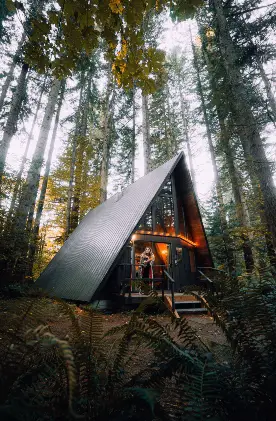Owning a long-term vacation rental is an excellent way to earn consistent revenue. However, managing one often means you’ll be wearing different hats, such as marketing, aligning booking calendars, responding to queries, and managing multiple listings.
These tasks can be overwhelming when you don’t know how to handle them. Keep reading this property owner’s guide to learn how to manage a long-term rental efficiently and why you should invest in one.
Three Types Of Vacation Rentals
Whatever type of property you have or plan to own, you can rent it out in three ways: monthly, short-term, or long-term. Here are ways these setups differ:
- Monthly: Sometimes considered long-term since the lease terms can exceed for more than 30 consecutive days. The difference is that the renter has the option to renew it every month.
- Short-Term: Tenants of this rental don’t pay utilities even if the property is fully furnished. Unlike in month-to-month rental, you’re only renting out the property for a few weeks or days, not more than 30 consecutive days.
- Long-Term: Compared to a short-term rental, the tenant is responsible for utilities even when the property isn’t furnished. Lease terms usually require tenants to rent the place for at least six months up to a year.
Benefits Of Long-term Rentals
When you rent out properties for a long-term period, you can enjoy the following significant benefits:
1. Easier To Manage
In long-term rentals, you need more time to manage the property compared to short-term rentals. Fortunately, you can still conduct business while working your property with the help of property management services. They offer a wide variety of services, so it’s best to visit sites like tetonvalleypropertymanagement.com and others to check services that suit your needs. The best thing about hiring these services is you can focus on other areas of your life while earning from your rentals.
2. High Security Deposit
Deposits are standard requirements from your guests to ensure they take care of your property. If they leave your property undamaged, you’ll return the deposit. In a long-term rental, you can charge a high security deposit. By doing this, you can have peace of mind that guests or renters will take care of your property.
3. Furnishings Not Required
As mentioned, long-term rentals are usually unfurnished. You don’t have to invest in buying furniture for the property since long-term renters typically have their furniture. You only need to furnish the property with the necessities such as showers, bathtubs, built-in cabinets, and others.
4. Less Turnover
Since your guests will stay for at least six months, you won’t worry about tenant turnover. You can expect your guests to remain in the period they’ve signed in the lease agreement.
Thus, you don’t have to conduct marketing, key handover, making paperwork, and other administrative tasks incorporated in turnovers. Most importantly, you won’t worry about filling the house again since the property won’t be vacated more than two or three times a year.
5. Consistent Income
Depending on your contract with the renter, you can expect monthly rental payments and quarterly or yearly leases. This means you can expect consistent income with long-term rentals. That is if you find guests or tenants who pay on time.
A Guide To Long-Term Vacation Rental
After considering the benefits and differences between long-term vacation rentals from others, the next step is to know how to start and manage it. Here are a few ways to do this to ensure you can stay profitable:
Plan The Business
You should consider every property that produces income as a business. And like any business, you need to create a business plan.
Developing a business plan for your vacation rental is an excellent way to understand your rental’s specific target markets. Cozy retreats in the snow are popular for winter sports enthusiasts, while a tiny seaside cottage might entice retirees. Whomever your targets are, you need to give your rental a name to market it to your potential tenants properly.

Moreover, include the following processes in your plan to ensure a satisfactory experience for your tenants:
- Design a website to post your property aside from listing it on rental sites. You can also get direct business with a website.
- Choose the vacation rental management software you’ll use.
- Consider whether to provide additional guest services in the booking system.
- Check if you need to provide concierge services, hire a dedicated housekeeper or third-party cleaning services, and other vendor services.
- Implement checkout rules that guests must follow, such as taking out all the trash and observing low noise levels.
- Develop round-the-clock support to help guests with maintenance issues.
- Consider the check-in system of tenants, like in-person key handoff, providing a lockbox, or setting a door code.
- To test if your plan is satisfactory, ask a friend or family member to book and stay at your vacation rental.
These steps help you identify which part of your services needs improving to provide excellent guest accommodations.
Conduct Market Research
After developing your business plan, next is market research. Knowing your target market familiarizes you with what they want, especially when you pay attention to these factors:
- Target Tenant: Decide whether to go for individuals, couples, or families or groups. That way, you can add specific features to your property depending on your tenants.
For instance, your property needs room for a comfortable workspace if you want to target “workationers.” If you’re going to accommodate couples like honeymooners, you might invest in some panoramic views in your more high-end suites. A garden is also ideal for families with kids so the kids have somewhere to play. - Local Laws: The most crucial aspect before you run a vacation rental is to check local laws, especially specific rules on how often you can rent out your property. That way, you can avoid liabilities, such as fines, when you ignore such laws.
- Seasonality And Demand: To maximize your earning potential, you need to check the demand for the property. You might want to acquire properties in urban locations to have a more predictable demand since they have more traffic all year round. On the other hand, expect other sites to be irregular during the year. However, it’s still best to check the relevant market data of the location to discover the actual vacation rental demand, even if you focus solely on seasonal demand.
- Location: Another critical factor when conducting market research is the location. Tenants will consider properties in a place most convenient for their needs. That’s why you should also ensure that your location can attract your target audience. If you want to yield better occupancy rates, properties such as a rustic cottage tucked away behind rolling hills, a rental within walking distance to the beach, or a rental downtown is ideal. Again, your location should suit a specific group’s needs.
These are a few items you must include when you research your market. Knowing what your target wants allows you to stay profitable and competitive.
Get Listed
Becoming fully booked is a goal made possible when you list your vacation rental on different channels. But before you do that, you need to implement the right strategies.
Since there are many platforms to attract and list bookings, choosing the right platforms for your business is key to minimizing risk for your rental property, driving demand, and getting more visibility. This means implementing a multi-channel distribution strategy that includes the following:
- Scale Your Revenue Per Available Rental (RevPAR) With Real-time Sync Technology: You may need a robust distribution framework to scale your RevPAR consistently. You can find third-party services that sync your reports with various online travel agencies (OTAs) like leavetown.com, HomeToGo, Google, Booking.com, Expedia, VRBO, and Airbnb. That way, you can quickly market and manage your vacation rental on major OTAs.
- Optimize For Revenue: Revenue optimization should be your next step. You can implement this by updating your listings and rates. Do so by focusing on demand generation via discounted deals and marketing. However, trying various tactics allows you to analyze what works best for your business.
- Listing Audits: Part of your responsibility when posting listings is to check your listings regularly. That way, you can adjust or revise them when OTAs update their policies or user interfaces. You must ensure you’re providing all the latest information about your listings across all channels. Of course, you must check whether they’re still visible.
- Efficient Channel Manager: When managing listings from different OTAs, you can automate and make it more efficient by using a single dashboard. You can do this via channel management services that let you develop data-informed decisions. Moreover, you can use these services for 100% less hassle, seamless channel distribution, and 24/7 guest communications. This means you can perform all the tasks of a property manager in one channel.

As you’ve read, getting guests to book your property isn’t as simple as posting a listing on different channels. You need to check them regularly and optimize them when needed to put your property on the map.
Hire Professionals To Manage The Property
Besides using property management software to manage your vacation rental, consider hiring professionals like property managers. With property managers, you won’t have to worry about planning and executing activities to ensure your property is in excellent condition.
They also know what and how preventative, seasonal, and routine maintenance works, keeping your property pristine. They can create a list for you to follow and streamline the process of maintaining your property. That way, you know what your property needs before they become expensive repairs or emergencies.
Other responsibilities of property managers include securing the premises, enforcing and negotiating leases, filling vacancies, and advertising your property. They can also help you receive a regular flow of tenants by ensuring your rental rates are up-to-date with similar properties in your area. They do this by calculating profit targets, taxes, depreciation, overhead costs, and surveying local rental rates before they set competitive rates.
Moreover, they know the latest trends in the travel industry to market your property properly. One excellent thing about property managers is that they can use property management software to help you manage online transactions. Furthermore, this software can help them with maintenance tracking, tenant screening, digital lease signing, online marketing, and other features.
Develop A Guest Screening Process
To manage your property personally, you must include guest screening in your system. Doing this ensures your property is in good hands. The guests you’ve chosen should be responsible enough to follow house rules to prevent damaging your property. As a result, you minimize or avoid allocating a significant amount for maintenance or repair.
Here are a few tips when creating a guest screening process:
- Collect basic details using a short form potential guests must fill out. Add entries for their contact information, the length of their stay, and for how many people.
- Use software or apps that have smart guest screening tech integration. You can integrate these apps into your management platforms to automate this process and deliver a positive experience.
- Create a rulebook for a larger number of tenants that covers festivals, occasions, and other events. That way, they’ll know what they can and can’t do during their stay, which can prevent damage to your property.
- Ask for a security deposit that you can use to compensate for any damages. House rules can help prevent potential property damage, but asking for a deposit is a wise move. The deposit also helps prevent tenants from consciously damaging anything on your property.
- Validate their payments first. Scams are rampant these days, and you need to check whether they can pay beforehand. Doing this protects your business from fraudsters. For long-term rentals, check whether they have proof of employment such as pay stubs or tax forms.
- Verify all guests who booked are the ones staying on your property by asking for their IDs.
Conclusion
Owning a long-term vacation rental is an excellent investment since you can expect a regular income from it. However, you need to manage it right to enjoy this benefit. Start with creating a business plan, conducting market research, listing your property, hiring property managers, and screening your guests. All these have a positive impact on your rental property business and ensure your success.























